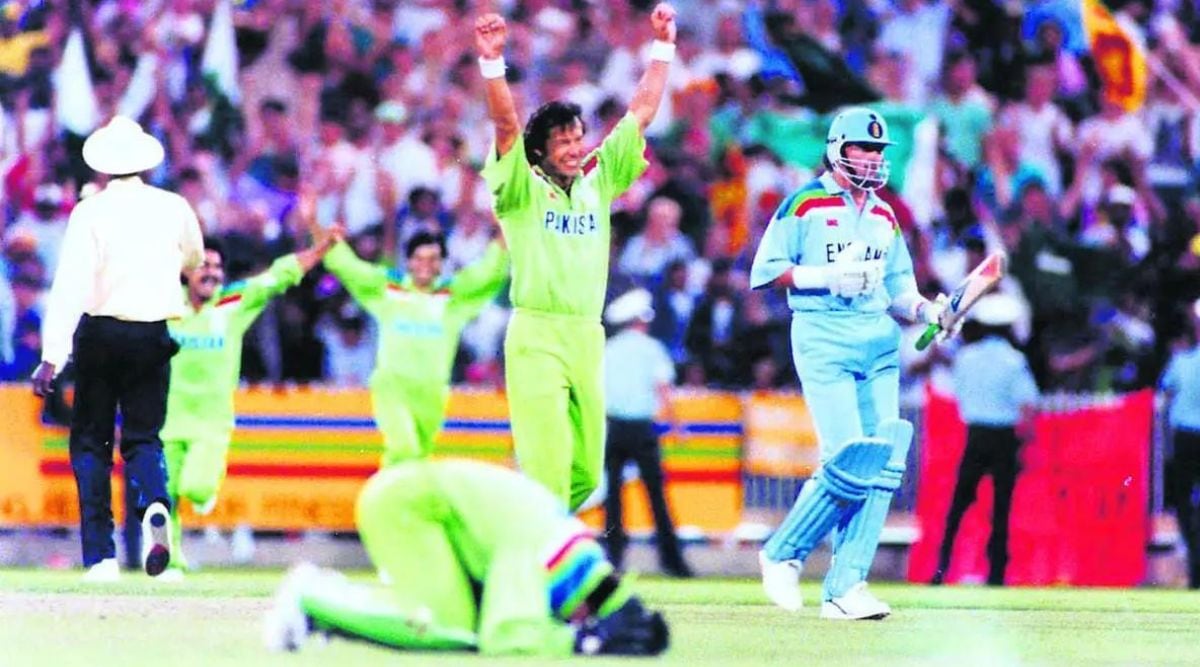
This week, Pakistan closed its eyes en masse, swaying to the soul-stirring voices of women. Kawar During his short life he remained true to the Sufi spirit “Maushiki” be in the form of “Ibadatt”The music was a tribute to the late Nusrat Fateh Ali Khan. On his 25th anniversary of his death there was a retelling of the usual story of his Shahenshah-e-Qawwali in Pakistan.
Nusrat’s voice had the power to take the listener into the world without worry, appealing to people from other cultures and appealing to both Bollywood and Hollywood floors. It will also help you win the World Cup.
This unique cricket badge of honor stands out among his enormous musical oeuvre. It also explains why most athletes walk around in headphones, why teams have theme songs, or why jumpers want the crowd to applaud rhythmically before sprinting to the pits. Music has the power to help athletes push their limits, but as Nusrat has shown, it can also help maintain composure in the complex uncertainties of sport.
Nusrat way Kawari The thread that Pakistan held up during the World Cup freefall is part of Pakistani cricket folklore. was.
Skipper Imran Khan was the one who got his team hooked on Nusrat. Kawar It will be a constant background score of Pakistan’s historic journey to lift the World Cup.
According to the story, throughout the match, the dressing room had a Sufi feel with Nusrat’s “Allah hu, Allah hu, Allah hu” playing in a loop. Aamir Sohail loaded it into his player cassette and took it to his area for training and the team to his bus.
Years later, Javed Miandad said that the Nusrat had given them “jazz bar”.For Rameez, singing was communication “Uparwala”.
When the Imran boys were battered and on the verge of being knocked out of the World Cup, the Master himself became suspicious of them.
It was no secret at the time that Nusrat was an integral part of the team’s dressing room. As a result, he too was facing flak. The subcontinent’s cricket fans were themselves and were usually unreasonable when their team was down.
Panicked, Nusrat called his friend and fan, Imran. In a later interview, he recalled the conversation. “I called Imran and told him ‘qaum toh aapke saath hume bhi bura keh rahi hai .. ki yeh sub player qawaaliyan sunne lage aur match haarne lage (The country is also blaming me for the defeat, saying that the players are listening. kawali And we lost the game,” he said.
That March 1992, Imran was in the Zone. He had unrealistic beliefs within the team. It seemed that someone had given him a glimpse into the future. He may have shared the final script with him beforehand. In fact, Nusrat said Imran told him not to worry because he would win the World Cup. “We hear qawwalis every day,” he said.
A few years ago, when Pakistan never tired of walking the ‘1992’ lane again, Imran Khan mentioned Nusrat in his World Cup total recall. He hinted that music as a source of motivation for the entire dressing room was something no one else did at the time. It kept his team ahead of its time.
There is an otherworldly feel to Nusrat’s voice, the reverent tone of his words has a meditative effect, and the philosophical essence of the work is to take cricket’s defeat in the larger context of existence. I made it incomplete. Defeat didn’t mean the end of the world because all day long I listened to Nusrat’s ears.
Less meta, other singers have also helped cricketers who want to keep the mess out of their heads. On one Australian tour, Sachin Tendulkar scored 0, 1, 37, 0, 44 for him. Shivaji The noise outside was evocative, even for those accustomed to surprising expectations from his days spent in the park.
Tendulker is said to have listened to Bryan Adams’ Summer of ’69 on loop for five days. Sydney He scored an unbeaten 241 in the Test. It was a painful innings. Tendulkar reduced his shots and refrained from penetrating his cover. He “played until his fingers bled.” He wanted to turn his clock back and live “the best days of his life.”
From Adams to John Lennon. Arsenal’s most famous manager, Arsene Wenger, was inspired by the Beatles to solidify his football philosophy. Wenger, who was born in a small village in France that borders Germany, said he had a “cult of manual labor” in his house. Even tractors came to his village when he was a teenager. A street football player until the age of 19, he was a prominent modern football player and thinker.
On the BBC’s iconic program Desert Island Disc, Wenger elaborated on why he chose “Imagine” as one of his songs. “They[the Beatles]make things that look very complicated and simple,” he says. That’s why Arsenal was able to make complex strategies look simple and beautiful.
As Nusrat, Adams, and Lennon conceived, wrote, composed, and sang ideas, they knew their songs would inspire iconic teams and help sports superstars achieve historic feats. Little did I know.
Please send your feedback to sandydwivedi@gmail.com.
Sandeep Dhuivedi
National Sports Editor
Indian Express
.

Commentaires
Enregistrer un commentaire